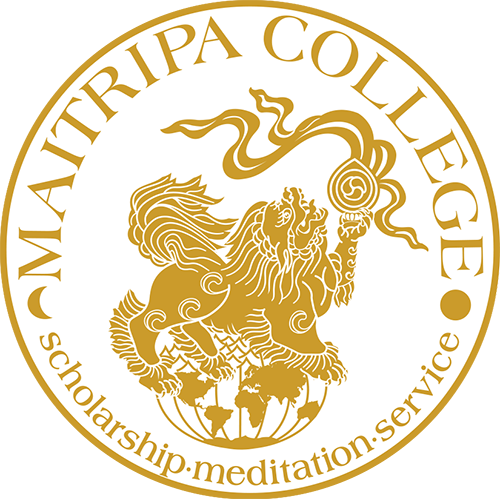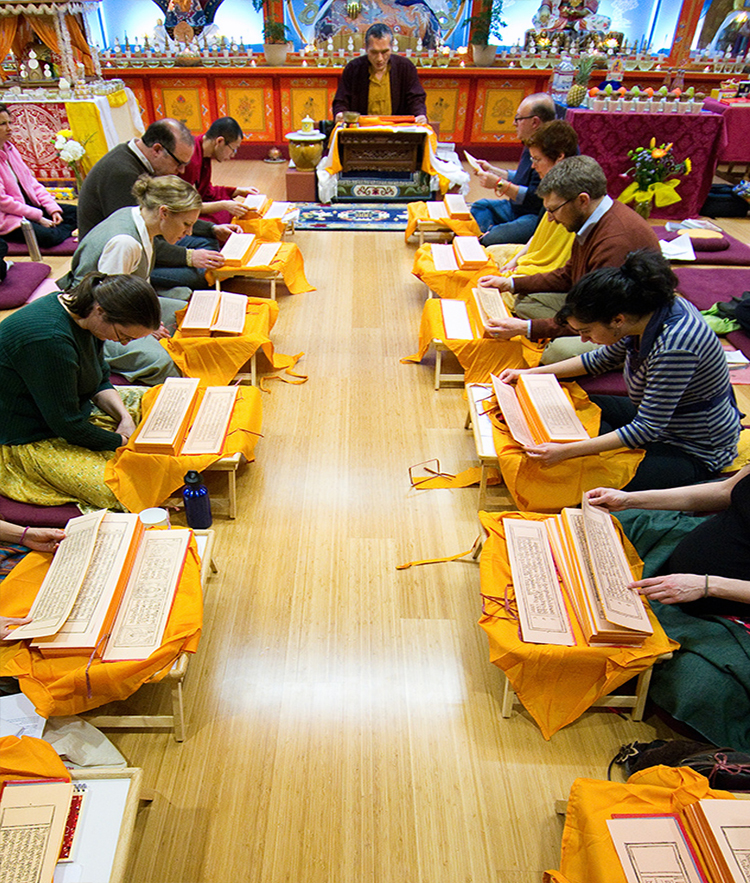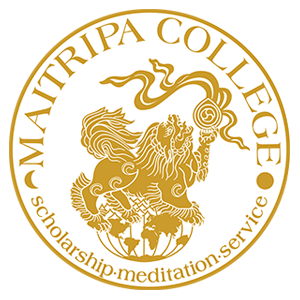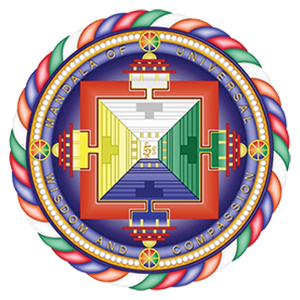The MA Tibetan Language Track
The Tibetan Language Track of the MA in Buddhist Studies is a structured course of classical Tibetan language study in combination with philosophy and meditation instruction designed to give the student a strong foundation in the Tibetan Buddhist tradition through immersion in texts of the tradition.
This course of study can be used as preparation for deeper engagement in textual translation, to further contextualize one’s work in the world, and/or as a frame for personal spiritual journey. Immersion in the textual tradition of Tibetan Buddhism is a powerful method to learn its philosophy, practice, and connection to the world. The Tibetan Language Track can be taken as a stand-alone sequence of courses at the graduate level or as part of the Master of Arts of Buddhist Studies.
What is Classical Tibetan?
Classical Tibetan (as opposed to colloquial Tibetan, the spoken language) is primarily textual. Its script and grammar were developed and standardized beginning in the 7th century in order to facilitate translation of the Indian Buddhist corpus. Since many Sanskrit Buddhist texts were lost during medieval invasions of India, their Tibetan translations are surviving repositories—often all that is left—of the irreplaceable teachings of the great Indian masters. Moreover, Tibetans went on to create a vast commentarial literature of their own. In this course, the focus is on Tibetan as written by Tibetan and Mongolian Buddhist monks in and around the 15th century.
Why Study Classical Tibetan Language?
To study Tibetan is to study Buddhism. Knowledge of Tibetan allows students to understand the original meanings of texts, prayers, rituals, and meditations at a depth inaccessible to those with no understanding of the language. When a person becomes their own translator, their point of view opens; their viewpoint expands. José Cabezón, PhD (XIVth Dalai Lama Professor of Tibetan Buddhism at the University of California, Santa Barbara and founding board member of Maitripa College), says studying Tibetan language at the textual level is one of the best ways to learn the practice and philosophy of Tibetan Buddhism: “A text reading class is one of the few opportunities that students have to really engage with Tibetan literature in a serious and careful fashion.” Tibetan language studies are foundational for the student and scholar preparing for graduate work or research.
Learning Tibetan language opens access to the entirety of Tibetan studies from philosophy and ritual to medicine, literature, history, and culture. Students are instilled with an understanding of the high regard with which Tibetan Buddhists venerate texts as the words of the Buddha and lineages of scholar-practitioners, and the immense efforts that have gone in to the salvage, preservation, and translation of these works.
Yangsi Rinpoche’s Vision
President Yangsi Rinpoche’s vision for the Tibetan language program at Maitripa College is to establish a translation group that will publish works from the Nalanda tradition which have not yet been translated into any western language.



